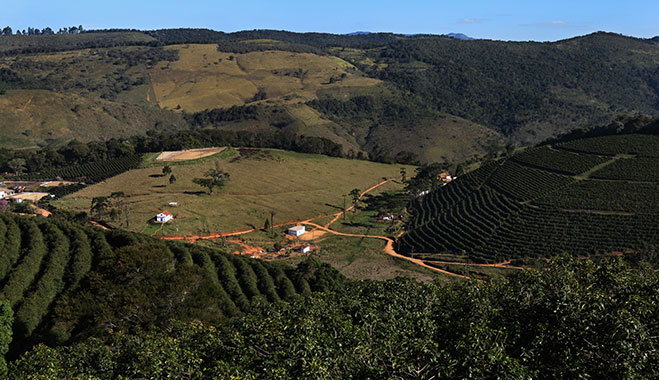
Arabica coffee futures – the most popular variety of the beans consumed globally – have increased close to 90 percent in the past year to fetch the highest prices in over two years. Driving the increases is a spread of a disease in Central American crops, but, more crucially, a severe drought in Brazil has hit production.
Brazil produces close to 40 percent of the world’s Arabica beans, and certain regions such as Minas Gerais, which produces close to a quarter of the country’s beans, have had only a tenth of average rainfalls during the wet season.
“Data from 68 meteorological stations and 264 rain gauges tell us that the climate in Minas Gerais is changing”, said Coffee & Climate in a recent report. “Nearly all parts of the state experienced significant warming over the 1960-2011 period, with warm extremes increasing and cold extremes decreasing.”
Other coffee producing nations have also faced abnormal weather, and unseasonably cold weather has severely damaged crops in Vietnam, the world’s second largest coffee grower. Draught has also plagued other growing nations in South East Asia.
Central American coffee growers have also been affected by adverse weather, but in a different way. The spread of leaf rust, a fungus that ravishes crops, is said to be linked to climate change and the current outbreak has been the worst in four decades.
[I]f adverse conditions do not improve, price raises at the consumer end will
be inevitable
In Panama, the most severely hit country in the region, 86 percent of coffee plantations have been affected by the disease, while 74 percent of crops in El Salvador have been affected, according to the International Coffee Organisation (ICO).
“The loss in coffee production in Central America for this crop year, 2014, is estimated at $250 million,” Mauricio Galindo, head of operations at the ICO told Thomson Reuters Foundation. “Scientists close to the ICO link the fungus to climate change, which is causing higher temperatures and increased precipitation. Coffee leaf rust thrives in these conditions.”
According to Eco-Business, it is unlikely that consumers will face any significant price hikes this year, as “most big coffee houses tend to buy on what’s called the futures market – locking in a set price for their goods, often for years in advance. Traders are also holding large stockpiles of beans after a bumper harvest last year.”
However, if adverse conditions do not improve, price raises at the consumer end will be inevitable.
“People are realising every day that there’s damage, and that the losses will be hard to quantify,” Hernando de la Roche, a senior vice president at INTL FCStone in Miami, told Bloomberg. “Traders are jittery because of the uncertainty about the Brazilian harvest and what it would mean to world supplies.”


